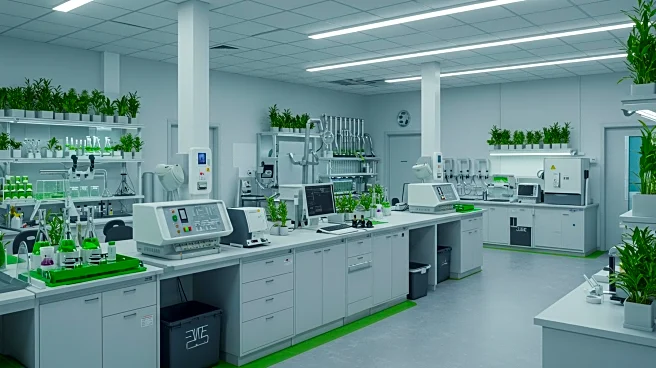What's Happening?
Liberia has launched a new environmental laboratory under the Environmental Protection Agency (EPA) to enhance pollution detection and response capabilities. This facility allows for forensic testing of air, water, and soil samples, enabling quicker responses to contamination emergencies without relying on foreign labs. EPA Executive Director Emmanuel Urey Yarkpawolo emphasized the lab's potential to back findings with scientific evidence, marking a significant step in addressing pollution issues. The lab is part of broader reforms aimed at improving the agency's infrastructure and compliance capabilities.
Why It's Important?
The establishment of the environmental lab is crucial for Liberia as it faces severe pollution challenges that threaten public health, the environment, and economic stability. Effective pollution management can mitigate health risks such as cholera and respiratory illnesses, which are exacerbated by poor waste management and rapid urban growth. The lab's capabilities could lead to more stringent enforcement of environmental laws, holding polluters accountable and potentially improving air and water quality. This development is vital for sustainable development and protecting the livelihoods of communities dependent on natural resources.
What's Next?
For the lab to be effective, experts stress the need for the government to enforce regulations based on scientific data. The Boakai administration has shown mixed results in pollution management, with some enforcement actions taken but lacking transparency in follow-up. The EPA plans to release a report on recent mining inspections, which could set a precedent for future enforcement. Collaboration across government agencies is necessary to ensure comprehensive regulation and protection of public health and the environment.
Beyond the Headlines
The lab's success depends on overcoming historical challenges of political will and enforcement. Critics highlight the need for independent testing to verify pollution levels, as companies often provide their own reports. Stronger penalties and transparency are required to deter politically connected polluters. The lab could also foster collaboration among government agencies, enhancing overall regulatory effectiveness.









